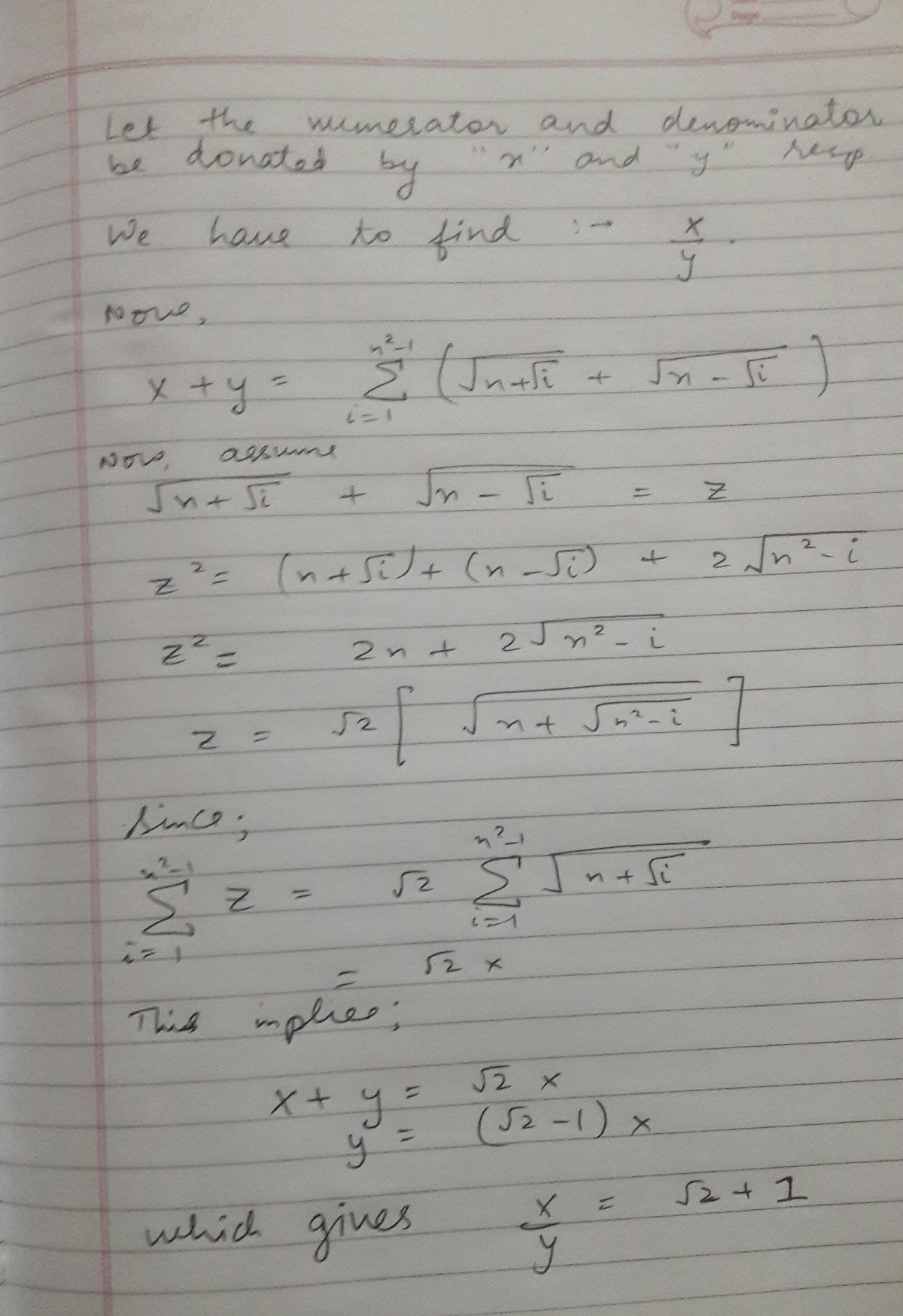Sum-it-up!
a n = i = 1 ∑ n 2 − 1 n − i i = 1 ∑ n 2 − 1 n + i
Find the limit n → ∞ lim a n .
The answer is 2.414.
This section requires Javascript.
You are seeing this because something didn't load right. We suggest you, (a) try
refreshing the page, (b) enabling javascript if it is disabled on your browser and,
finally, (c)
loading the
non-javascript version of this page
. We're sorry about the hassle.
2 solutions
 Now , we observe that the fraction
"
y
"
"
x
"
does not depend on the value of n. Thus, the answer will remain same even if n approaches infinity ..
Now , we observe that the fraction
"
y
"
"
x
"
does not depend on the value of n. Thus, the answer will remain same even if n approaches infinity ..
Since n 2 5 1 i = 1 ∑ n 2 − 1 n + i n 2 5 1 i = 1 ∑ n 2 − 1 n − i = n 2 1 i = 1 ∑ n 2 − 1 1 + n 2 i → ∫ 0 1 1 + x d x = n 2 1 i = 1 ∑ n 2 − 1 1 − n 2 i → ∫ 0 1 1 − x d x as n → ∞ , and since elementary integration gives ∫ 0 1 1 + x d x = 1 5 8 ( 1 + 2 ) ∫ 0 1 1 − x d x = 1 5 8 we deduce that n → ∞ lim a n = ∫ 0 1 1 − x d x ∫ 0 1 1 + x d x = 1 + 2